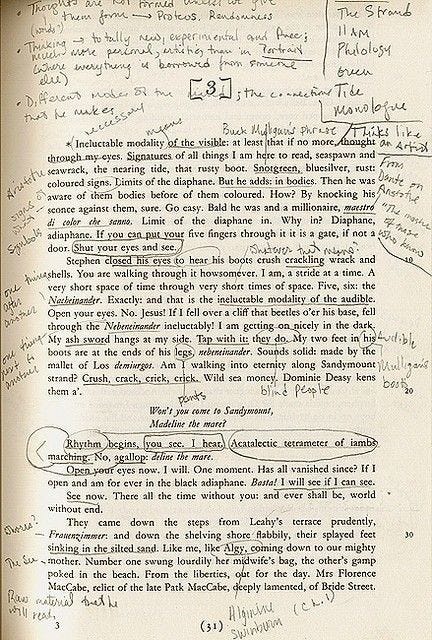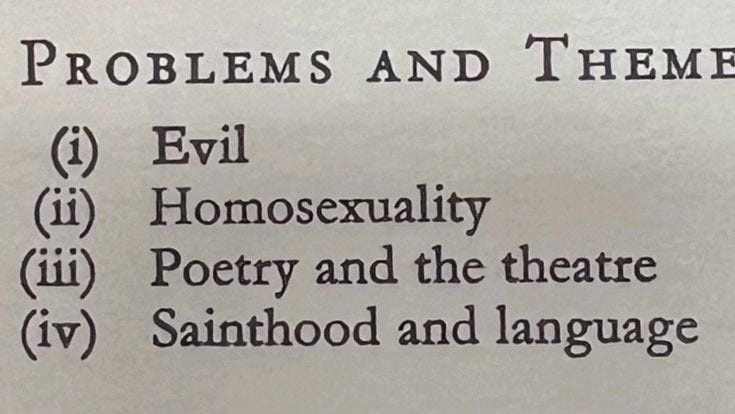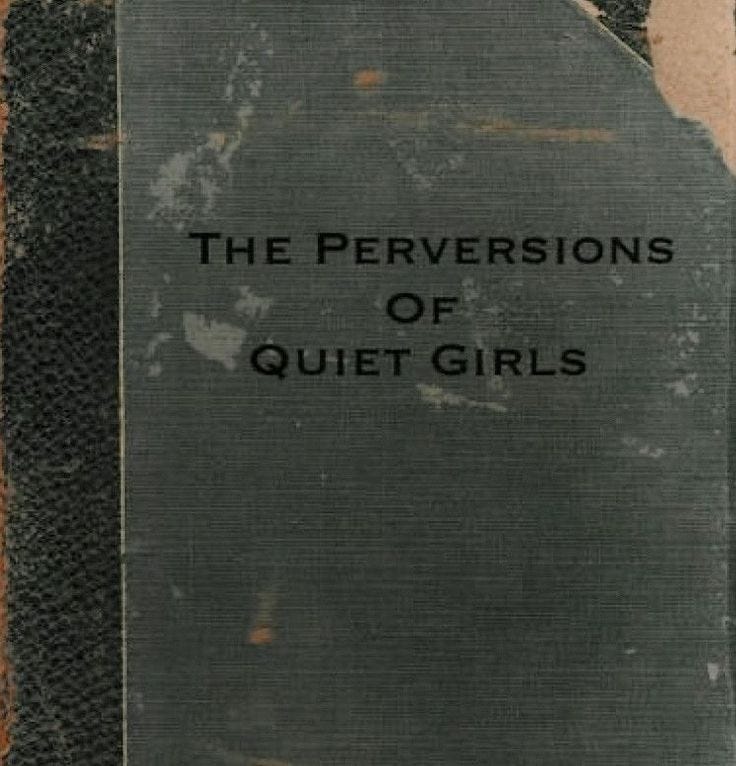how to read philosophy (without losing your mind)
this sentence might ruin your life: how to read philosophy on purpose
hello.
philosophy is one of those things people say they want to read—and then never do. not because they aren’t curious, but because no one ever teaches you how. you pick up a book and within two pages, you’re drowning in unfamiliar language, abstract concepts, and footnotes that lead you deeper into the abyss.
the truth is that philosophy isn’t hard because it’s inaccessible. it’s hard because it’s asking you to do something most forms of reading don’t—it’s asking you to slow down. to sit in uncertainty. to question your most basic assumptions about life, death, time, freedom, selfhood, god. it’s not designed to be understood in a single sitting. it’s designed to be lived with. to reread. to return to. to be changed by.



so if you want to start reading philosophy—or if you already do and just want to go deeper—here’s a guide to help you read with more clarity, confidence, and intention.
start with the introduction. always. never skip the introduction. in most other genres, it’s optional. in philosophy, it’s essential. a good intro gives you the historical context, the philosophical stakes, the central questions, and the intellectual lineage the author is working within. you’ll learn what the philosopher is responding to, why the argument matters, and what terms mean before you get lost in the weeds. annotate the intro. underline definitions. circle major themes. it’s your roadmap. if it’s a translated edition, pay attention to the translator’s note too—it often clarifies nuances of language that are easy to miss.
use the stanford encyclopedia of philosophy. philosophy has its own vocabulary, and you are not supposed to already know what “substance dualism” means. or why aristotle cared so much about “being qua being.” this is a completely different language, and the stanford encyclopedia of philosophy (SEP) is your best translator. every entry is written and reviewed by professional philosophers. it gives you trusted, academic-level overviews of key terms, thinkers, and schools of thought. even grad students use it.
read with a question in mind. philosophy isn’t about memorizing arguments—it’s about asking better questions. every book you pick up was written to answer a question. so bring one of your own.
before reading, ask yourself:
what is this philosopher trying to solve?
what problem are you hoping to understand better?
if you’re reading camus, maybe it’s: how do we live without meaning? if you’re reading beauvoir: can we be free and still love others? if you’re reading kierkegaard: is despair a weakness—or a form of truth?
read with a purpose. let the book provoke you. argue back.
slow down. slower than you think. this is not a novel. you are not meant to fly through it. some of the best reading sessions will only take you through a page or two—and that’s enough. if one paragraph stops you in your tracks, stay with it. philosophy is not about finishing. it’s about metabolizing. let the ideas sink in. allow confusion. be suspicious of speed.
annotate like you’re arguing with a ghost. annotation should be active—not decorative. don’t just highlight a sentence and write “wow.” treat the book like a conversation. leave actual thoughts behind:
i don’t agree with this at all
is this a contradiction?
why does he assume this is self-evident?
mark key concepts, counterarguments, surprising turns. write questions to revisit later. trace how your thinking shifts.
your copy of the book should look like you lived inside it.
symbols help, too (the margin is your workshop)
* = core argument
! = striking idea
? = confusion or curiosity
→ = connection to another thinker
[ ] = counterpoint or critique



keep a commonplace book. every philosopher kept one. montaigne, pascal, even marcus aurelius. it’s your space to collect quotes, fragments, ideas, and feelings that haunt you. it’s not about being neat—it’s about making a record of the thoughts that stick. copy down things you don’t fully understand yet. jot down questions. use it as a map of your intellectual growth.
reread everything. you will not understand it all at once and that’s the point. the first time, you’re just trying to survive. the second time, you start to hear the rhythm. the third time, something clicks. philosophy rewards obsession. go back to the same sentence in a different mood, or a different season of life, and watch it undo you in a new way. that’s when you know it’s real.
read with your body. not just your brain read aloud. walk while listening to an audiobook version. record yourself trying to explain the argument in your own words. let it move through you like music. if you’re an audio learner, use tools like voice dream reader or speechify to turn dense PDFs into immersive experiences. if you’re a verbal thinker, talk out loud. let it live in your mouth. philosophy isn’t just intellectual. it’s physical. emotional. existential. read with your whole self.
don’t wait to be “qualified” to read philosophy. you don’t need a phd. you don’t need to be in a seminar. you don’t need to write like a scholar. what you do need is: sincerity. curiosity. and the willingness to read something three times, still not understand it, and keep going anyway. you belong in this conversation. and the more you participate—by reading, writing, arguing, and reflecting—the more fluent you’ll become.
fall in love with not knowing. the goal isn’t to master philosophy. it’s to be transformed by it. you’ll never have all the answers. but you’ll ask better questions. you’ll learn to sit with ambiguity. you’ll become more patient, more precise, more awake. if you finish a chapter more confused than when you started? that’s not failure. that’s contact.
stay in the mystery. argue with ghosts. read slowly. think deeply.
resources i use and love:
philosophize this! (foundational and accessible)
the partially examined life (great for deeper analysis)
voice dream reader / speechify / natural reader (for listening to philosophy aloud)
lastly, i wont leave you without some philosophy books to help get you started…
also, if you want to support the work i’m doing by becoming a paid subscriber—and be part of a smaller circle where things feel a little softer, a little more personal—you’ll get early access to my youtube videos, a weekly q&a audio podcast, and the cutting room floor: scraps, thoughts, and quiet things i’m not ready to let go of yet. nothing polished. just human. i’d love to have you there.



philosophy books for the aesthetically inclined, spiritually restless, and intellectually feral
1. the myth of sisyphus – albert camus
still the ultimate entry point. camus gives you language for the feeling you already have: that life might be meaningless, but it doesn’t mean you stop living. it’s lucid, fatalistic, and strangely hopeful.
core themes: absurdism, suicide, lucidity, revolt
read this if: you want to romanticize your existential crisis
2. the ethics of ambiguity – simone de beauvoir
ethics meets existentialism. de beauvoir isn’t writing commandments—she’s writing questions. she makes freedom feel like a responsibility and ambiguity feel like a virtue.
core themes: freedom, ambiguity, moral development
read this if: you want to live responsibly without becoming insufferable
3. groundwork for the metaphysics of morals – immanuel kant
dense, yes—but essential. kant gives you the foundation for how modern moral theory functions. it’s not about vibes—it’s about reason, universality, and taking responsibility for your own mind.
core themes: duty, autonomy, categorical imperative
read this if: you want to become ethically unshakeable
4. the sickness unto death – søren kierkegaard
if you’ve ever tried to “find yourself” and ended up in a spiral—this is for you. kierkegaard redefines despair as a form of spiritual misalignment. it’s like reading a theology of the self falling apart in slow motion.
core themes: selfhood, despair, god, the soul’s inwardness
read this if: you’re chronically online and chronically spiritual
5. meditations – marcus aurelius
stoicism that feels like therapy. practical, deeply human, and perfect for people who overthink everything and just want to feel like it’s going to be okay (without being lied to).
core themes: perspective, virtue, emotional regulation
read this if: you want to be calm without being passive
6. meditations on first philosophy – rené descartes
start with this before going into full metaphysical territory. descartes is clean, rigorous, and weirdly relatable—especially if you’ve ever doubted everything down to your own body. an essential foundation for rationalist thought.
core themes: doubt, self, mind-body dualism
read this if: you want to tear reality apart and put it back together
7. nicomachean ethics – aristotle
the original blueprint for a life well-lived. aristotle believed in becoming good through habit—not rules. it’s structured, practical, and surprisingly affirming. a must-read if you want a philosophy of becoming rather than performing.
core themes: virtue, flourishing, the golden mean
read this if: you’re tired of all-or-nothing thinking and want a philosophy of balance
8. on the genealogy of morality – friedrich nietzsche
blistering, bitter, brilliant. this is where you go when you’re ready to question every value you’ve inherited. it’s not about agreeing with him—it’s about realizing how deeply morality is constructed.
core themes: guilt, power, history, resentment
read this if: you want to obliterate your inherited sense of right and wrong
9. being and time (selections) – martin heidegger
approach this like sacred text. don’t read the whole thing. just engage with sections on being-toward-death, authenticity, and care. heidegger will ruin language for you, but also open up how you see time, presence, and being itself.
core themes: existence, mortality, authenticity
read this if: you want to think like time is a haunting, not a clock
10. a breath of life – clarice lispector
not traditional philosophy—but it’s everything you’ve been trying to say about existence, language, and womanhood. this book isn’t written—it descends. it’s metaphysics through the body, God through absence, and consciousness as a fever dream.
core themes: creation, nothingness, eros, divinity, language
read this if: you want philosophy to feel like possession instead of argument
bonus: the brothers karamazov – fyodor dostoevsky
it’s not technically philosophy—but it’s more than most philosophy books. this novel contains arguments about god, morality, suffering, and free will that rival any formal treatise. every character is a theory. every conversation is a reckoning. you don’t read it for plot—you read it for the part of your soul it sets on fire.
core themes: faith, doubt, justice, evil, love
read this if: you want to feel like you’re holding the entire human condition in your hands
if you’re curious to explore more of my favorite philosophy books, you can browse them here.
okay, that’s all for today.
if you’re not ready to become a paid subscriber and you have the capacity to leave a tip, that would be so appreciated.
i love you.
bye.
(follow ig, tiktok, youtube, pinterest and spotify for more)




As a philosophy undergrad, they don't teach you this!! At least, they didn't teach me - when I first arrived all I was given was a reading list, an essay question and an expectation of 1500 words in a week's time. As someone who had studied exclusively STEM prior I was clueless and terrified! It really made me start to hate philosophy. I'm nearing 2 years into my degree and I'm now trying to unlearn all the bad habits I picked up when I started and learn how to read philosophy properly. Thank you for writing this - I wish I could've had something like this at the beginning of my degree.
Thank you for this tips. Reading your newsletter has inspired me to read philosophy. I will start with Plato. I have bought Wittgensteins Tractatus and saved the corresponding Philosphize this episode